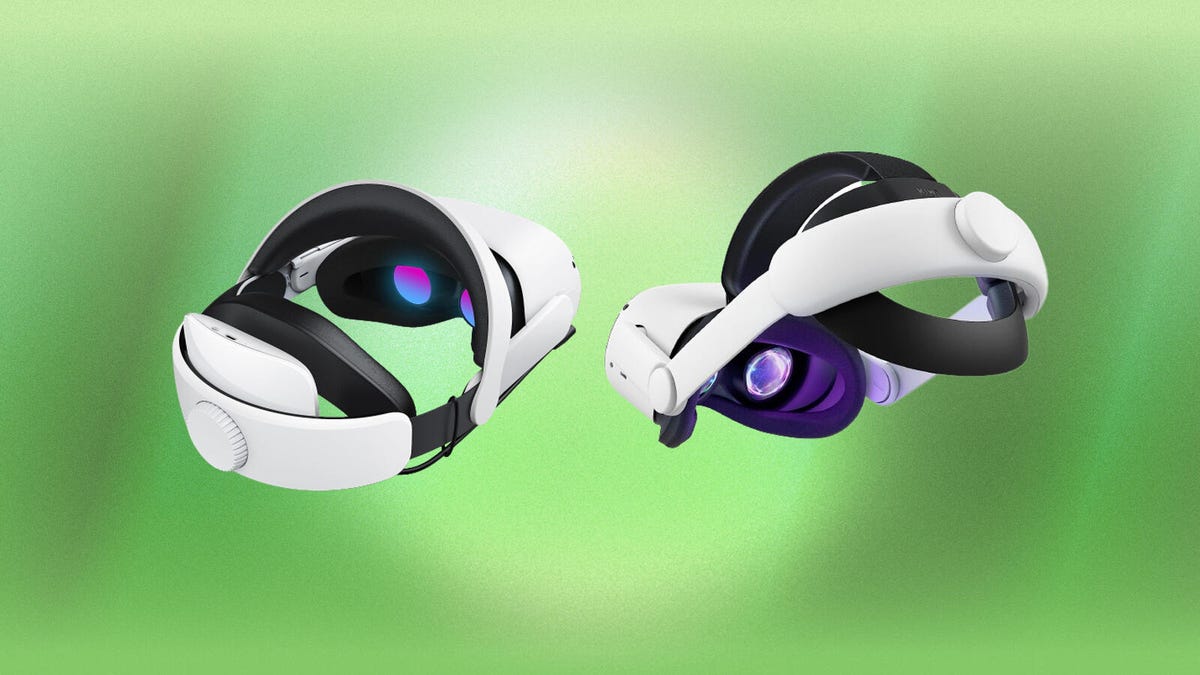Meta's AR/VR Business Lost $7.7 Billion in the Past 6 Months
Meta's next VR headset, the Quest 3, comes out this year.

Meta's Quest 2.
Facebook and Instagram parent company Meta has reported an operating loss of $7.732 billion in its Reality Labs segment during the six months ended June 30. Reality Labs includes all of Meta's virtual reality and augmented reality hardware, software and content.
It comes ahead of the company launching its new VR headset, the Quest 3, which is due to be released this fall.
The Quest 3 VR headset will start at $499. It will have a smaller size, a faster processor, improved controllers, and more color cameras to improve the mixed reality experience for VR games and apps.
Meta recently dropped the price of its Quest 2 VR headset -- the most popular VR headset on the market currently -- to $299 and last year also launched a business-focused version, the $1,500 Meta Quest Pro VR headset.
But Meta still expects to lose more in this segment. "For Reality Labs, we expect operating losses to increase meaningfully year-over-year due to our ongoing product development efforts in augmented reality/virtual reality and investments to further scale our ecosystem," Meta said in its CFO outlook commentary Wednesday.
Meta will also soon have to compete with Apple in the AR/VR space, with the latter announcing its Vision Pro mixed reality headset last month. Apple's Vision Pro will cost $3,499 and be launched next year. Samsung is also working on a mixed reality platform with Qualcomm and Google.
Meta leans into AI
Meta's balance sheet was healthy overall, however. Its family of apps -- Facebook, Instagram, WhatsApp and Messenger -- earned an operating income of $24.4 billion in the six months ended June 30.
Meta CEO Mark Zuckerberg pointed to incoming developments across artificial intelligence, new social media app Threads and the upcoming Quest 3 headset.
"We have the most exciting roadmap I've seen in a while with Llama 2, Threads, Reels, new AI products in the pipeline and the launch of Quest 3 this fall," Zuckerberg said.
Meta said it would continue investing in its "most compelling opportunities, including artificial intelligence (AI) and the metaverse."
Across AI, the company last week launched the second generation of its large language model, Llama 2, making it available for free commercially in a partnership with Microsoft. Large language models are what power generative AI chatbots, like OpenAI's ChatGPT and Google's Bard.
Qualcomm is also working with Meta to make Llama 2 AI implementations available on phones and PCs starting next year.
Meta last week said there have been over 100,000 requests for access to Llama 1 since it was launched in February.
For the three months ended June 30, Meta reported $31.999 billion in revenue overall, with $7.788 billion in net income.
Editors' note: CNET is using an AI engine to help create some stories. For more, see this post.

